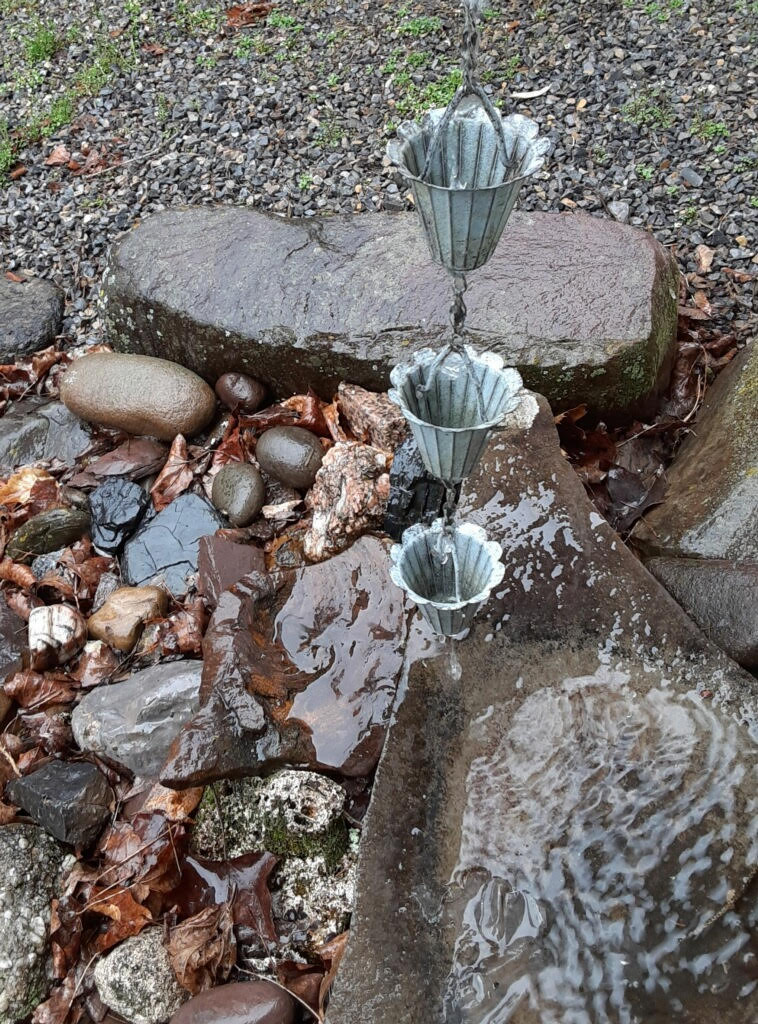By Susan Sprout
You know that smell – digging in the soil, when rain is on the way or just over, that earthy, musty, spring-like scent coming your way on a breeze. It is petrichor, Greek for stone and blood of the gods, AND there is chemistry involved! A combination of geosmin, (C12 H22 O) an alcohol released by dead microbes, PLUS ozone, an ion of oxygen produced by lightning and other atmospheric gases, PLUS the aromatic oils of living and dried plants EQUALS petrichor! That wonderful, standing out on the porch and sniffing the air, “It’s sprinkling out” smell! I didn’t know it had a name. The word “petrichor” was just coined in 1964 by two chemists, although people have been smelling it forever.

The major component of petrichor that we need to know more about is the geosmin, or earth smell, which provides the scent of dead soil bacteria. When raindrops fall on a porous surface like dirt, aerosols are released that carry the smell created by bacteria, like streptomyces, in those small bubbles, up, up and away on the wind. We humans appear to be extremely sensitive to geosmin, a trait we may have picked up and kept on our evolutionary journey to now. This may have come about due to our ancestors’ need to find water sources in order to survive. Certainly rain had a very important impact on their food sources as well.
We can smell and taste the geosmin molecule in other places besides the air. In fact, some folks don’t like where it occurs. For example, in community water supplies, especially those places that depend on surface water; the skin and dark muscle tissue of fish; the taste of mushrooms and root vegetables like beets and carrots. Researchers have found that using an acid in or on some of the above will decompose the geosmin molecules into odorless substances. Can you make the connection…lemon slices in the water served by restaurants…lemon juice squirted on fish and other seafood…the use of vinegar to “pickle” beets and other root veggies…Got it?
Humans do seem to like the smell, however. Chemical companies actually create synthetic versions of geosmin that are used in perfumes, air fresheners, scented candles, and a lot of other places we may not know about. The bottom line is that odors can trigger both positive and negative emotions because they are associated with specific memories. What memories come to you in the rain or on a mushroom laden pizza?


